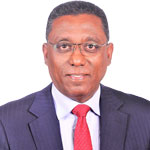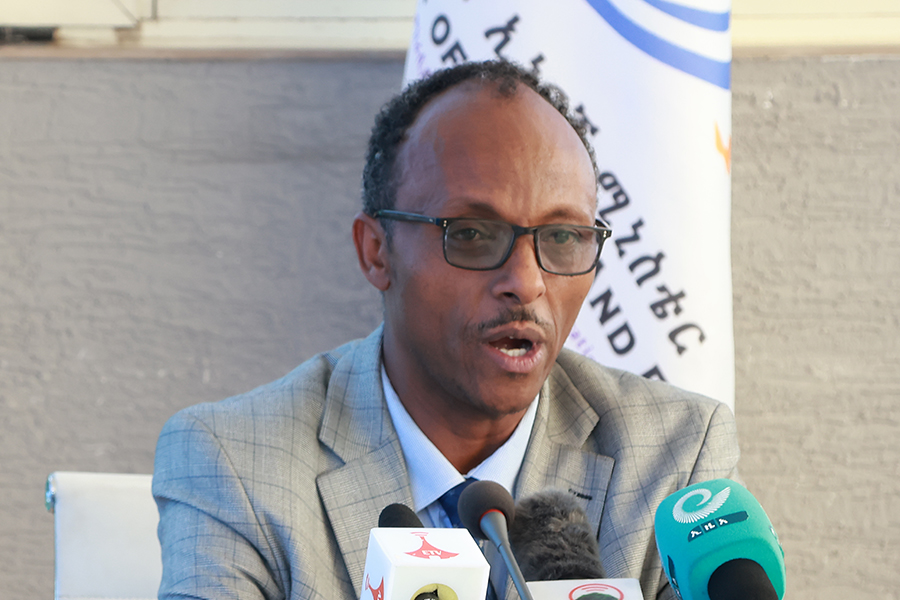
Radar | May 28,2022
Dec 10 , 2018
By Desta Mebratu (Prof.)
Despite being a continent with abundant energy resources, a great chunk of the African population still lacks access to electricity. This could change by focusing on the use of distributed energy resources, writes Desta Mebratu (Prof.) (desta@africaleapfrog.org), CEO of African Transformative Leapfrogging Advisory Service.
The closing event of the Nelson Mandela International Day for 2018 was marked together with the centenary of the famous South African’s birthday at the Global Citizens Festival held this past weekend. The Nelson Mandela Foundation dedicated this year’s celebration to the fundamentally important issue of the eradication of poverty in Africa.
During this festival, key development partners, including the Gates Foundation and the World Bank, pledged support for Africa with a particular focus on the education and health sector. This will make a major contribution toward building the required social capital for development in the region.
However, if we wish to make any meaningful dent on poverty in the region, such efforts by foundations, governments and international institutions on building social capital need to be coupled with addressing the prevailing energy poverty in the region. More than 600 million people in Africa do not have access to electricity, and approximately 730 million people rely on traditional uses of waste material from plants and animals, according to the International Energy Agency. This is despite Africa being a continent endowed with relatively abundant renewable energy resources that are yet to be developed.
Renewable energy is the oldest form of energy in our planetary system and pre-exists any form of life, including the evolution of homo-sapiens. As such, it was also the source of many sources of energy known to modern society. Until the introduction of coal as a source of energy, the economic and social life of pre-industrial society had been almost wholly dependent on the use of renewable energy sources, including biomass and wind energy.
The global socio-ecological and socio-economic crisis that humanity is currently faced with as a result of climate change and unsustainable consumption and production patterns have once again brought renewable energy resources to the forefront. The transition to a renewable energy system is driven by key techno-economic drivers that lead to an enhanced capacity of competitive renewable energy generation. Significant progress has also been made in recent years in the area of energy storage.
A number of African countries have started investing in developing their renewable energy resources with a primary focus on the provision of light and cooking energy, which is an important first step. This effort should, however, go beyond lighting and cooking and focus more on catalysing broader development at the local level through productive value additions.
Given the dispersed pattern of human settlement in the region, renewable energy can provide multiple benefits if it is developed with the right scale and has strong symbiotic relationships with the local economy. This would require ensuring an optimal mix of grid and off-grid renewable energy development during the planning and development of power infrastructure.
Developing such plans takes into account the specific settlement pattern, resource availability and broad impact at the local level. Beside promoting the fair distribution of energy, such an approach could also result in a cost-efficient utilisation of existing grid-based energy infrastructure through a reduction of transmission loss.
Harmonising the development of distributed energy systems with possible job creation and economic value addition at the local level through integrated planning is key for maximising its distributive impact.
African countries can also make significant progress toward poverty eradication through the development of community-owned renewable energy service cooperatives. Such cooperatives could serve as key vehicles for maximising the productive linkage of distributed renewable energy systems to the local economy and promote distributional justice through an inclusive planning and implementation process. They could also serve as an important platform for empowering women and youth through the creation of jobs and the provision of sustainable livelihoods at the local level, thereby promoting social inclusivity.
Recent progress made in renewable energy technologies and the favourable policy environment at the global and regional level provide unique opportunities for transformational energy transition in Africa. Making the best out of this opportunity though largely depends on having a good understanding of the emerging techno-economic regimes and making informed policy decisions on the optimal mix of scale and renewable energy resources.
Investing in distributed energy systems is key for maximising the return from the investment on human capital and eradicating poverty from the region. It is about time that African governments and development partners consolidate their support to promote distributed energy systems in the region.
PUBLISHED ON
Dec 10,2018 [ VOL
19 , NO
972]


Radar | May 28,2022

Viewpoints | May 28,2022

Viewpoints | Mar 19,2022

Radar | Nov 11,2023

Commentaries | May 25,2024

Viewpoints | May 04,2019

Radar | Jul 20,2025

Fortune News | Nov 07,2020

Commentaries | Oct 23,2021

Films Review | Feb 23,2019

Photo Gallery | 174756 Views | May 06,2019

Photo Gallery | 164978 Views | Apr 26,2019

Photo Gallery | 155220 Views | Oct 06,2021

My Opinion | 136724 Views | Aug 14,2021
Editorial | Oct 11,2025

Dec 22 , 2024 . By TIZITA SHEWAFERAW
Charged with transforming colossal state-owned enterprises into modern and competitiv...

Aug 18 , 2024 . By AKSAH ITALO
Although predictable Yonas Zerihun's job in the ride-hailing service is not immune to...

Jul 28 , 2024 . By TIZITA SHEWAFERAW
Unhabitual, perhaps too many, Samuel Gebreyohannes, 38, used to occasionally enjoy a couple of beers at breakfast. However, he recently swit...

Jul 13 , 2024 . By AKSAH ITALO
Investors who rely on tractors, trucks, and field vehicles for commuting, transporting commodities, and f...

Oct 11 , 2025
Ladislas Farago, a roving Associated Press (AP) correspondent, arrived in Ethiopia in...

Oct 4 , 2025
Eyob Tekalegn (PhD) had been in the Governor's chair for only weeks when, on Septembe...

Sep 27 , 2025
Four years into an experiment with “shock therapy” in education, the national moo...

Sep 20 , 2025
Getachew Reda's return to the national stage was always going to stir attention. Once...

Oct 12 , 2025
Tomato prices in Addis Abeba have surged to unprecedented levels, with retail stands charging between 85 Br and 140 Br a kilo, nearly triple...

Oct 12 , 2025 . By BEZAWIT HULUAGER
A sweeping change in the vehicle licensing system has tilted the scales in favour of electric vehicle (EV...

A simmering dispute between the legal profession and the federal government is nearing a breaking point,...

Oct 12 , 2025 . By NAHOM AYELE
A violent storm that ripped through the flower belt of Bishoftu (Debreziet), 45Km east of the capital, in...